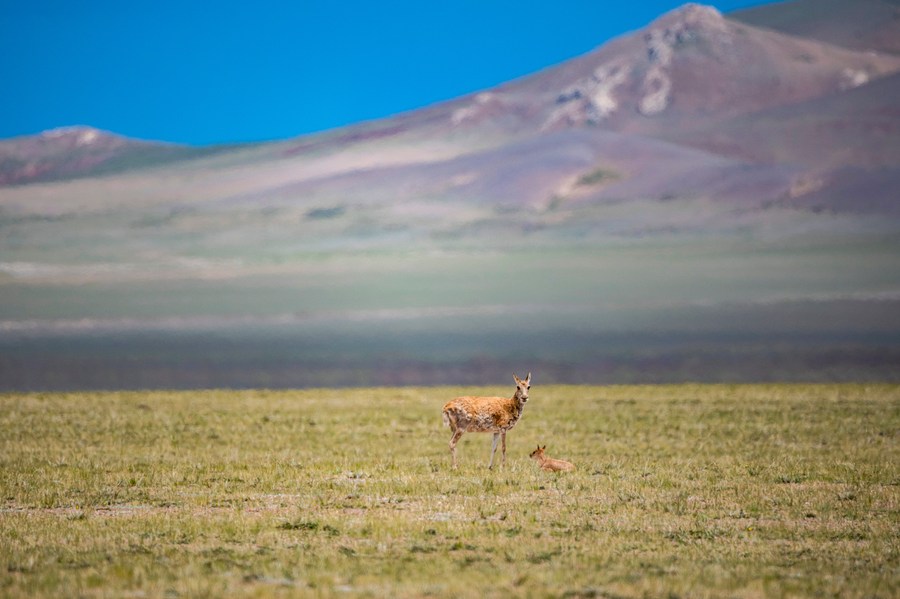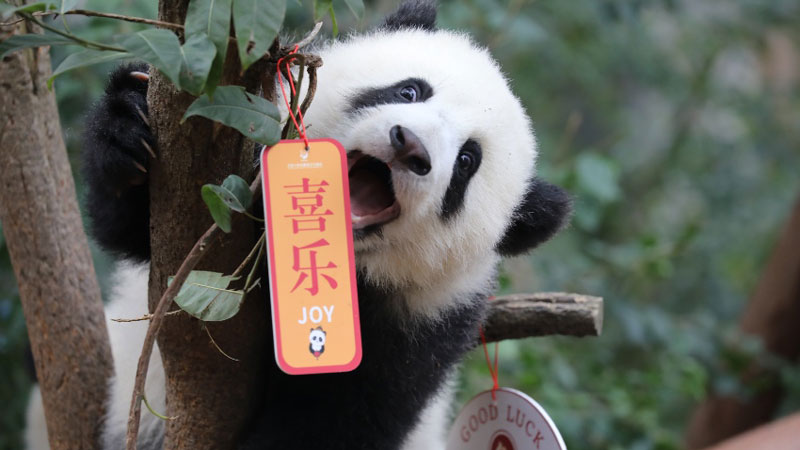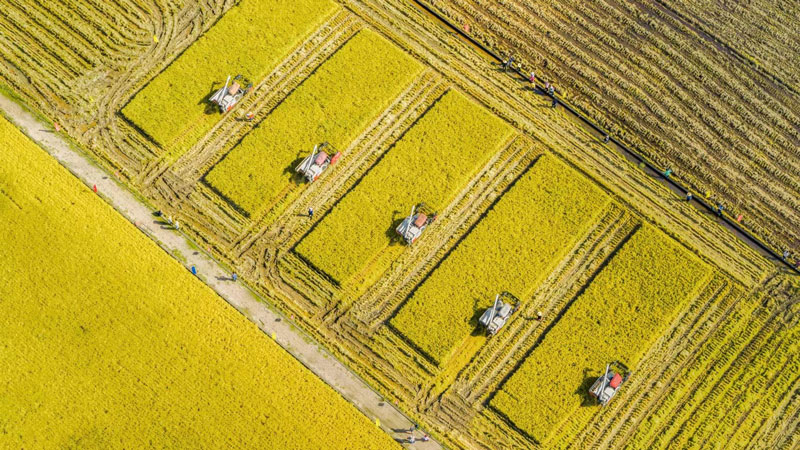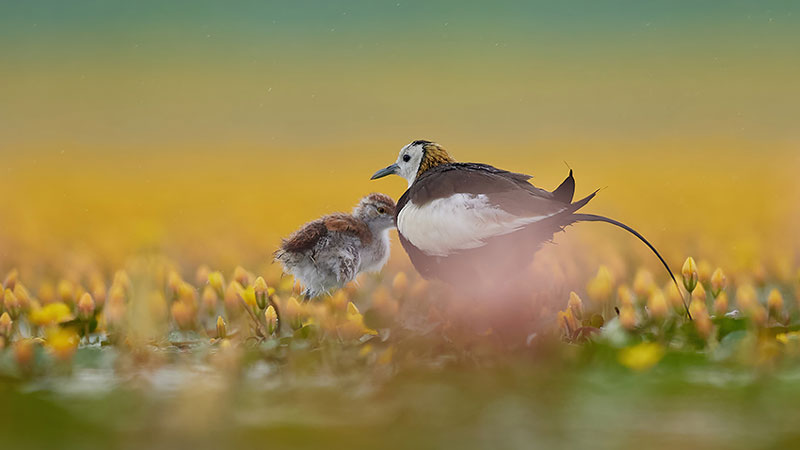China revises law on wildlife protection

Photo taken on July 11, 2022 shows a female Tibetan antelope taking care of its baby at the Qiangtang National Nature Reserve in Southwest China's Tibet autonomous region. [Photo/Xinhua]
BEIJING, Dec. 30 (Xinhua) -- Chinese lawmakers on Friday voted to adopt a revised Law on the Protection of Wildlife, which will take effect on May. 1, 2023.
The revised law was passed at a session of the National People's Congress (NPC) Standing Committee, which was held from Tuesday to Friday.
It strengthens the protection of the habitats of wildlife and refines measures for the regulation of wildlife populations in detail.
The revised law explicitly prohibits consumption of wild animals under special state protection as well as terrestrial wildlife of important ecological, scientific and social values and others on the list of national protection.
Any acts of hunting, trading or transporting for meat of terrestrial wild animals that grow and reproduce naturally in the wild shall be forbidden, according to the revised law. It also intensifies punishment on related offenses.
The existing law on wildlife protection was formulated in 1988 and since then had seen three amendments and a revision, according to Yue Zhongming with the Legislative Affairs Commission of the NPC Standing Committee.
It has helped step up the protection of wild animals and their habitats and strengthen the rescue and breeding of endangered wildlife, said Yue, adding that it has also played an active role in preserving biodiversity and pushing forward with ecological conservation in China.
Yue noted that wildlife populations have recovered effectively as the ecological environment constantly improves in China. But some regions have been overrun with wildlife like wild boars, posing potential danger to people's safety and agricultural and animal husbandry production.
In response, the revised law stipulates detailed measures of regulating and controlling wildlife populations that has exceeded the environmental capacity.
It also makes stipulations on national subsidies for losses caused by wild animals, and on management of artificially bred species.
Photos
Related Stories
- China's revised law on women protection to take effect on Jan. 1
- Senior Chinese lawmakers meet to hear reports on draft law deliberations
- Draft rules aim to conserve ecosystems
- Draft law on financial stability targets risk
- Draft law on financial stability submitted to China's top legislature for 1st reading
Copyright © 2023 People's Daily Online. All Rights Reserved.









